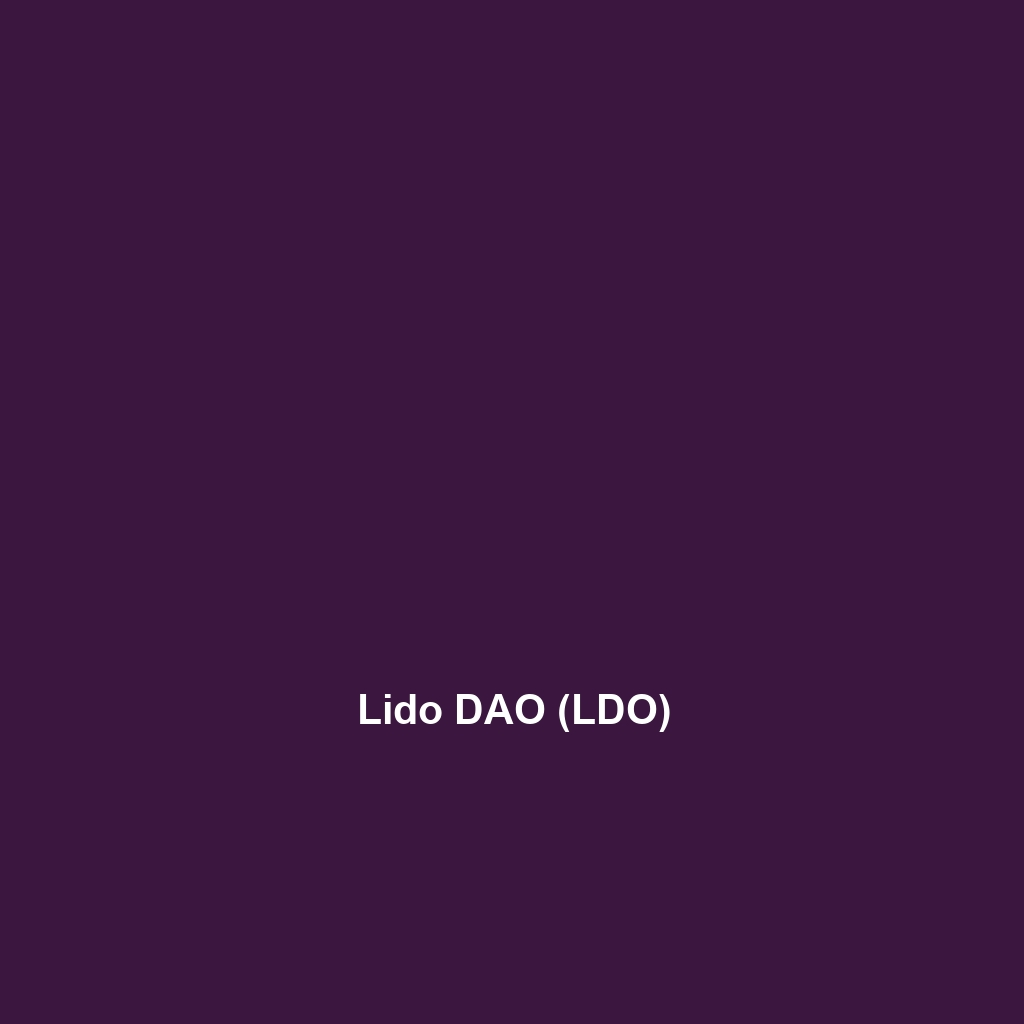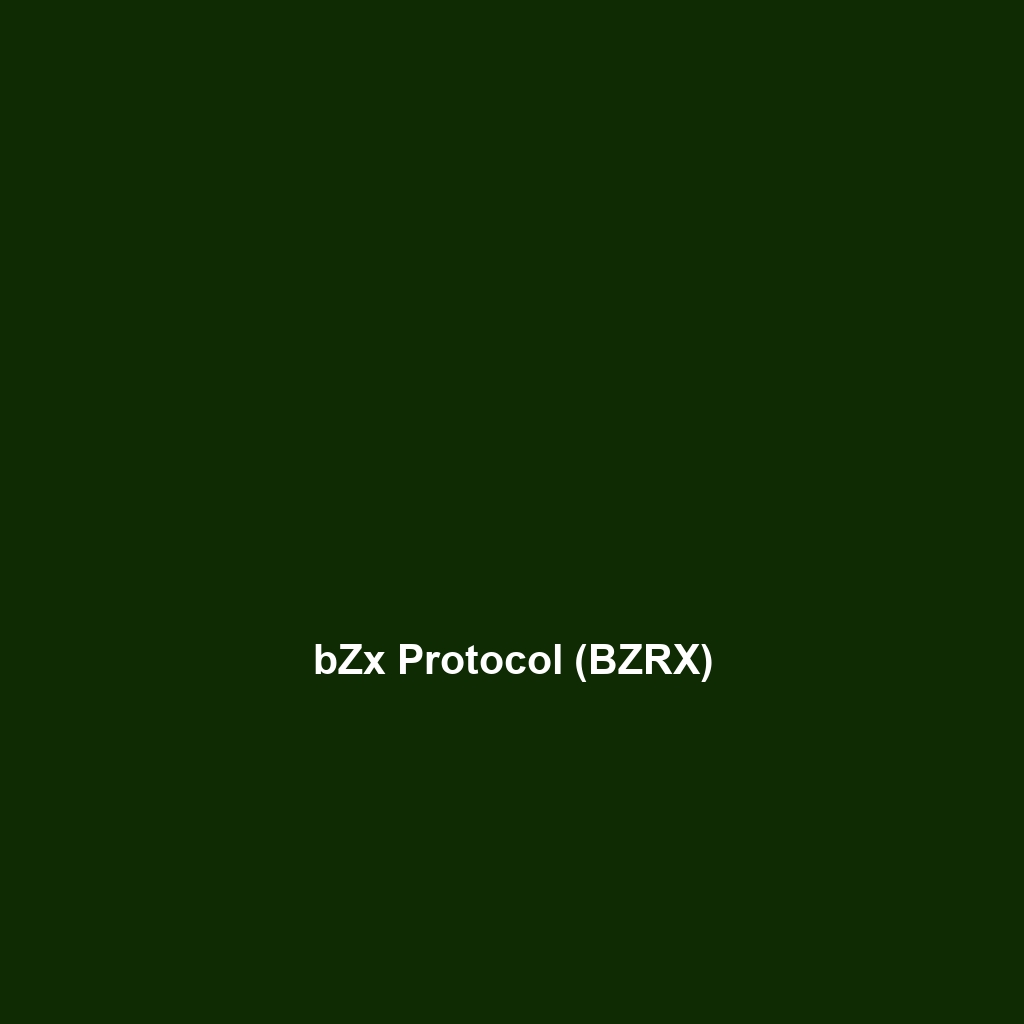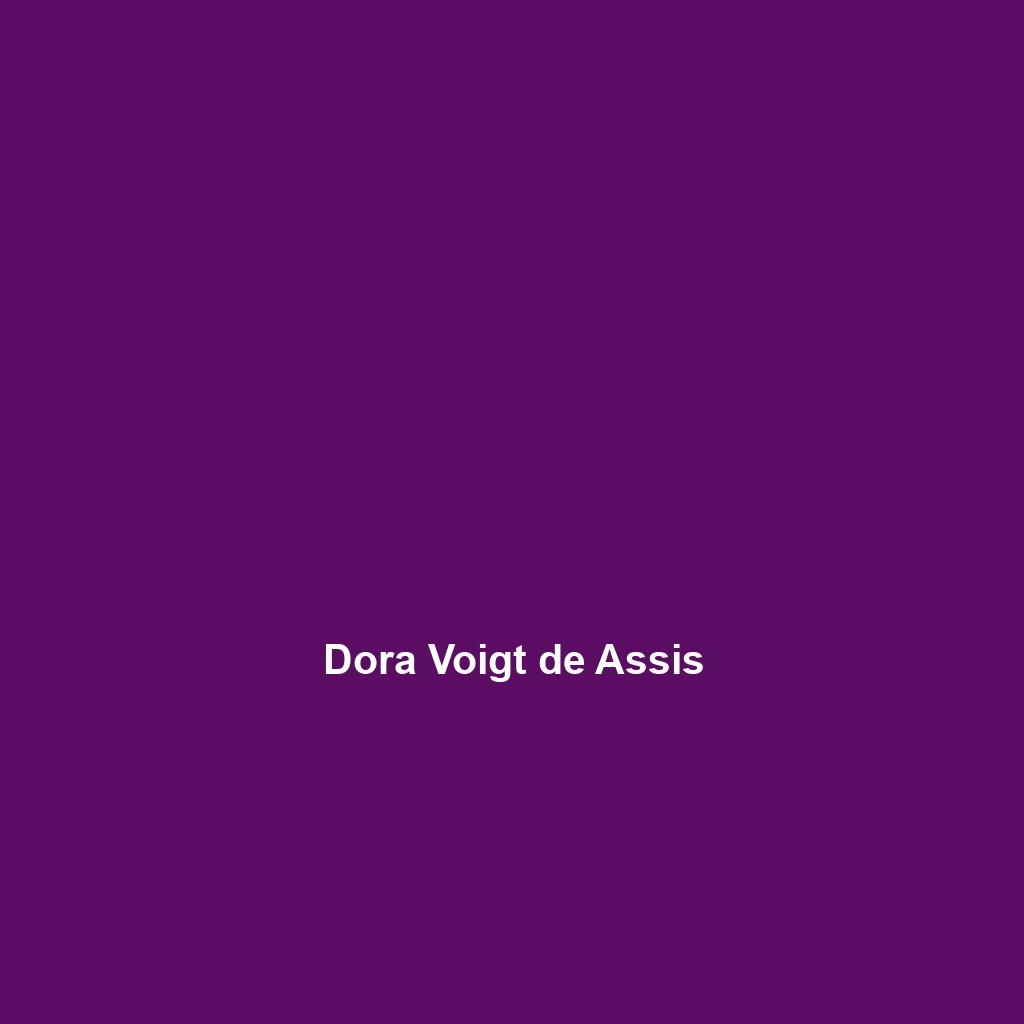Your cart is currently empty!
Tag: PoS consensus

Lido DAO (LDO)
Lido DAO (LDO) – A Comprehensive Guide to the DeFi Pioneer
1. Name and Ticker Symbol
Lido DAO is a leading decentralized finance (DeFi) cryptocurrency focused on liquid staking solutions. Its ticker symbol is LDO, and it operates within the burgeoning DeFi space, contributing significantly to the functionality of Ethereum and other blockchain networks.
2. Founders, Launch Date, and History
Lido DAO was founded in 2020 by a team of Ethereum experts, including Vasiliy Shapovalov, and co-founder and investor Jarrad Hope. Since its launch, the platform has achieved several key milestones, including the successful launch of staking services for Ethereum 2.0 in December 2020. Lido DAO gained traction due to its user-friendly interface and innovative solutions in a growing digital environment, making it a vital participant in the DeFi ecosystem.
3. Blockchain Platform
Lido operates primarily on the Ethereum blockchain, a leading platform for decentralized applications and smart contracts. The platform enables users to stake their Ethereum assets without locking them up, solving a core issue within the Ethereum 2.0 upgrade and offering a layer of flexibility and liquidity.
4. Purpose and Use Case
The primary purpose of Lido DAO is to facilitate liquid staking, allowing Ethereum holders to stake their assets while remaining liquid. Lido’s use cases include enhancing staking rewards, participating in governance decisions concerning the protocol, and integrating with various lending platforms to provide additional DeFi functionalities. This model offers users the ability to earn yields while still using their staked assets in other DeFi applications.
5. Technology and Consensus Mechanism
Lido DAO uses a Proof of Stake (PoS) consensus mechanism, which is integral to the Ethereum 2.0 ecosystem. This technology allows users to earn rewards by validating transactions on the network without needing to engage in the energy-intensive process often associated with Proof of Work systems. The Lido protocol uses specialized node operators to ensure security and reliability while enabling users to stake their tokens easily.
6. Supply and Tokenomics
The maximum supply of LDO tokens is capped, although the exact figure may fluctuate due to the ongoing market dynamics. As of recent estimates, the circulating supply hovers around 1 billion LDO tokens. The platform offers staking rewards to incentivize participation, typically ranging from 6% to 12%. Moreover, Lido DAO employs mechanisms to burn tokens, which can impact the overall supply and value.
7. Use Cases and Adoption
Real-world applications of Lido DAO include partnerships with exchanges like Binance and Huobi, which facilitate the trading of LDO tokens. Additionally, users benefit from the integration of Lido with other DeFi platforms, enhancing access to staking rewards and lending capabilities without compromising asset liquidity.
8. Market Performance and Metrics
Lido DAO has exhibited impressive market performance, with a market capitalization frequently ranking among the top DeFi tokens. Historical price trends reflect significant growth since its launch, accompanied by high trading volumes. Volatility has been characteristic of the DeFi sector, causing significant price fluctuations, yet Lido has remained a steadfast player in the space.
9. Where to Buy and Trade
LDO tokens can be purchased and traded on various centralized exchanges (CEXs) such as Binance, Kraken, and Coinbase. Moreover, decentralized exchanges (DEXs) like Uniswap and SushiSwap also provide liquidity for LDO trading pairings, making it accessible to a broader range of users.
10. Security and Risks
Lido DAO takes security seriously, but like any DeFi project, it is not immune to vulnerabilities. Past incidents within the DeFi landscape remind users to remain vigilant, as smart contracts can become targets. Regulatory risks also loom, particularly as governments assess how to manage digital assets. Lido’s team remains committed to transparency and user education to forge a secure environment for its participants.
11. Community and Governance
Lido DAO operates on a decentralized governance model, allowing LDO token holders to vote on proposals affecting the protocol’s future. The community plays an active role in decision-making processes, fostering a collaborative environment that prioritizes user engagement and consensus.
12. Competitors and Differentiation
Lido DAO faces competition from other DeFi projects such as Rocket Pool and Ankr, both of which also provide staking solutions. However, Lido differentiates itself through its user-friendly approach, robust integrations, and the ability to maintain liquidity with staked assets, making it a preferred choice among stakers.
13. Roadmap and Future Developments
Lido DAO’s roadmap includes continued development to expand staking services across multiple blockchains, enhanced scalability, and improved user experience through platform upgrades. Partnerships with additional DeFi projects are also anticipated, further solidifying Lido’s position in the space.
14. Wallet Compatibility
LDO tokens can be stored in various wallets, including hardware wallets like Ledger and software wallets such as MetaMask and Trust Wallet. This compatibility ensures that users can efficiently manage their crypto assets while providing enhanced security.
15. Regulatory and Compliance Status
The regulatory landscape for cryptocurrencies continues to develop, and Lido DAO is actively monitoring these changes to remain compliant with industry standards. Any legal challenges will be met with proactive measures to protect both the platform’s integrity and its users.
16. Recent News and Updates
In recent months, Lido DAO has announced strategic partnerships aimed at enhancing its platform’s capabilities, including integrations with lending platforms that support additional liquidity features. Lido has also introduced governance upgrades to better involve community stakeholders.
17. Summary and Call to Action
In conclusion, Lido DAO stands out as a pioneering force in the liquid staking domain of DeFi. With a strong community governance structure, an innovative technological framework, and robust market performance, Lido DAO (LDO) is a cryptocurrency that is certainly worth following. Engage with this revolutionary project and explore the potential of liquid staking to maximize your cryptocurrency experiences.
For additional insights, visit UpCube.net. Also, check out the cryptocurrency’s official website or whitepaper.

bZx Protocol (BZRX)
bZx Protocol (BZRX) – The Future of Decentralized Finance
Launched in 2020, bZx Protocol (ticker symbol: BZRX) is a pioneering player in the decentralized finance (DeFi) space, providing innovative solutions for lending and margin trading. Founded by a team passionate about leveraging blockchain technology for financial inclusivity, bZx has made significant strides in creating a platform that integrates seamlessly with decentralized applications (dApps). This comprehensive description covers various aspects of the bZx Protocol, including its history, technology, market performance, and much more.
Founders, Launch Date, and History
bZx Protocol was founded by Kyle Kistner, Antonio Juliano, and other early blockchain enthusiasts. The project was officially launched in 2020 and quickly gained traction in the DeFi market. Key milestones include the launch of its beta version and the subsequent rollout of its governance token, BZRX, which empowers the community to participate in decision-making processes. Over the years, bZx has witnessed several upgrades and integrations, establishing itself as a reliable platform for DeFi activities.
Blockchain Platform
bZx operates on the Ethereum blockchain, functioning as a layer 2 solution designed to improve scalability and reduce transaction costs. By utilizing Ethereum’s robust network, bZx benefits from the security and decentralization that Ethereum offers while also enhancing user experience via optimizations.
Purpose and Use Case
The primary purpose of bZx Protocol is to enable decentralized lending and margin trading without the need for intermediaries. Users can borrow and lend crypto assets effortlessly, while traders can access leverage to amplify their trading positions. This model fosters financial access and enhances liquidity in the cryptocurrency market.
Technology and Consensus Mechanism
bZx utilizes smart contracts to facilitate transactions, ensuring that all operations are executed transparently and securely. The platform’s consensus mechanism relies on Ethereum’s Proof of Stake (PoS) model, which not only improves energy efficiency compared to traditional Proof of Work systems but also enhances transaction speeds.
Supply and Tokenomics
The total supply of BZRX is capped at 1 billion tokens, with a substantial portion allocated for staking rewards and community incentives. The circulating supply is dynamic, contingent on user participation in staking programs and liquidity mining initiatives. bZx also incorporates burning mechanisms to reduce circulation over time, driving token value and demand upward.
Use Cases and Adoption
The bZx Protocol has been adopted by various platforms in the DeFi space, enabling lending and margin trading capabilities across decentralized exchanges (DEXs). Notable partnerships include integrations with platforms like Uniswap and 1inch, underscoring bZx’s utility in enhancing liquidity and trading options for users.
Market Performance and Metrics
As of the latest data, bZx Protocol€„¢s market cap is estimated at several hundred million dollars, positioning it as a significant player within the DeFi landscape. Historical price trends denote significant growth since launch, although the token has experienced volatility common to cryptocurrencies, highlighting the active trading environment. Its trading volume consistently reflects a healthy interest from the crypto community.
Where to Buy and Trade
BZRX can be traded on various exchanges, including centralized exchanges (CEXs) like Binance and Huobi, as well as decentralized exchanges (DEXs) such as Uniswap and SushiSwap. This extensive trading availability enhances accessibility for investors and traders globally.
Security and Risks
While bZx has made strides in securing its protocol, like many DeFi platforms, it is not without risks. The platform has experienced vulnerabilities in the past, including a notable hack in 2020. Nevertheless, the team has continually worked on improving security measures to protect user assets and enhance the platform€„¢s resilience against potential threats.
Community and Governance
bZx Protocol incorporates a decentralized governance model, allowing BZRX token holders to vote on key decisions affecting the protocol€„¢s evolution. This community-driven approach has fostered a vibrant ecosystem where users are actively engaged in shaping the future of the platform.
Competitors and Differentiation
In the rapidly evolving DeFi arena, bZx competes with projects like Compound and Aave. Its unique offering lies in its focus on margin trading, enabling users to leverage assets while providing a decentralized alternative to traditional margin trading platforms. This specialization draws a specific user demographic looking for comprehensive trading options.
Roadmap and Future Developments
Looking ahead, bZx Protocol has an ambitious roadmap that includes the introduction of new features, enhanced user interfaces, and further scalability upgrades. The team continues to explore partnerships that can expand its ecosystem and user base, solidifying its standing in the DeFi sector.
Wallet Compatibility
BZRX is compatible with several popular crypto wallets, including MetaMask, Ledger, and Trezor. Such compatibility ensures that users can securely store and manage their tokens while engaging with DeFi applications.
Regulatory and Compliance Status
The DeFi landscape, including projects like bZx, faces scrutiny from regulators worldwide. While the platform has not faced significant legal challenges, the evolving nature of regulatory frameworks means users should remain informed about potential changes that might impact operations.
Recent News and Updates
Recent developments for bZx Protocol include partnerships aimed at enhancing liquidity and user engagement, alongside upgrades to security protocols. As the DeFi landscape evolves, bZx remains at the forefront, adapting to new trends and technologies.
Summary and Call to Action
bZx Protocol (BZRX) offers a robust and innovative solution for decentralized lending and margin trading, making it a noteworthy entity in the DeFi space. With its unique features, strong market presence, and community-driven governance, bZx remains an exciting project to follow. For investors, traders, or anyone interested in the future of finance, bZx Protocol is definitely worth monitoring.
For additional insights, visit UpCube.net. To learn more, explore bZx Protocol€„¢s official website.

